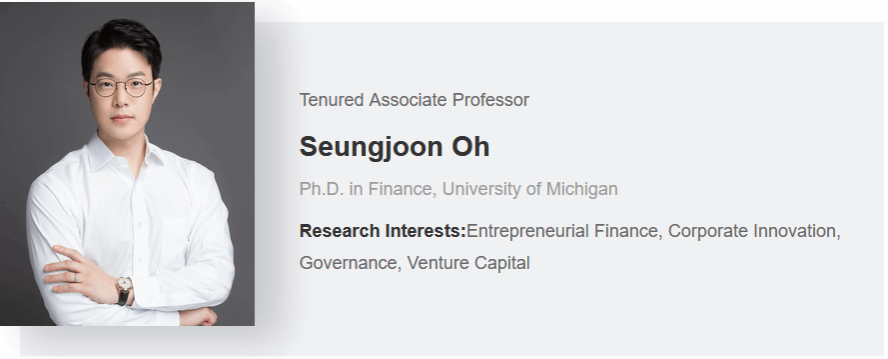A recent study by Professor Seil Kim of the City University of New York and Professor Seungjoon Oh of Peking University HSBC Business School has been published in the September 2024 issue (Volume 29, Issue 3, pp. 2617–2649) of Review of Accounting Studies (RAST).
Review of Accounting Studies (RAST) is a globally recognized, top-tier accounting journal, ranked among both the Financial Times’ FT 50 and Peking University’s PHBS 50 (China International Research Publications in Economics and Management). The journal maintains a five-year impact factor of 6.2.
In corporate board meetings, directors discuss and approve actions related to key matters, such as dividend payments, investment decisions, and CEO appointments. For major issues such as mergers or bylaw amendments, the entire board must approve the decision. Before meetings, outside directors receive relevant non-public information to assist in decision-making, which gives them an informational advantage. While such information is crucial for effective board oversight, it may also lead to opportunistic insider trading. This paper investigates whether outside directors engage in trading based on non-public information received before board meetings.
Using a unique dataset that includes the regular board meeting schedules of U.S. companies, the paper finds evidence of informed trading by outside directors before meetings. During this period, they make more profitable and larger purchases than they do at other times. In contrast, inside directors — who possess private information — do not show such patterns of trading behavior, regardless of the timing of board meetings. Moreover, the profitability of outside directors’ purchases made prior to board meetings is associated with subsequent news disclosures and is realized shortly after purchases, suggesting that they engage in opportunistic use of private board meeting information.
The findings highlight the trade-off between effective monitoring and opportunistic insider trading. While board meetings ensure strong corporate governance, they also create opportunities for insider trading, which can undermine market fairness. The paper suggests that regulators should strengthen their oversight of trading activities around board meetings and consider requiring confidential reporting or the public/private disclosure of board meeting schedules to prevent insider trading.
About Seungjoon Oh:
Seungjoon Oh is a tenured Associate Professor at Peking University’s HSBC Business School. He holds a Ph.D. in Finance from the University of Michigan. His research focuses on entrepreneurial finance, corporate innovation, corporate governance, venture capital, and more. His work has been published in journals such as The Accounting Review, Journal of Financial Intermediation, Journal of Corporate Finance, Journal of Banking & Finance, and Journal of Business Research.
















